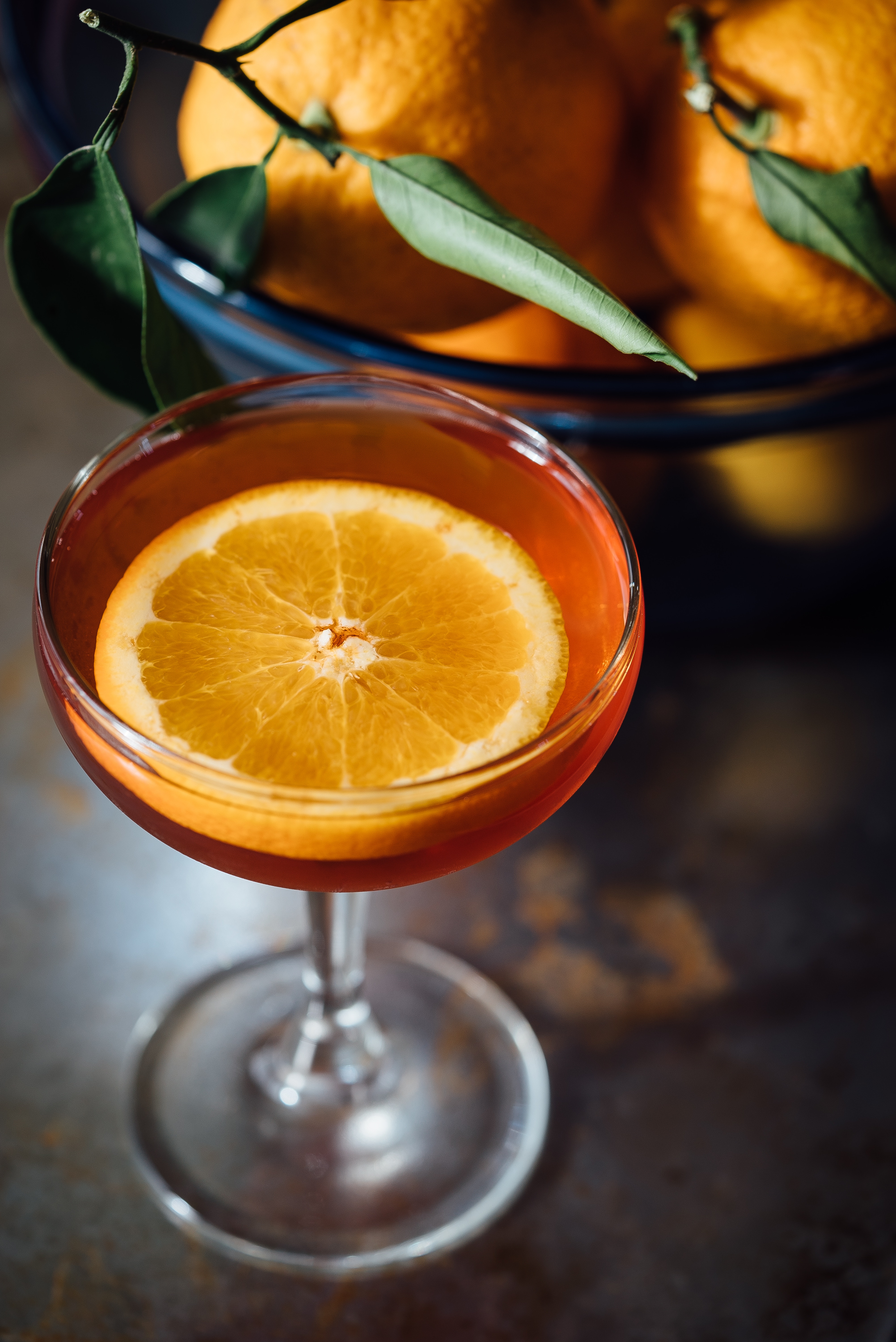
Did you know that oranges are actually modified berries? The name “navel orange” comes from the belly-button formation opposite the fruit’s stem end. The bigger the navel, the sweeter the orange.
Christopher Columbus planted the first orange trees in the Caribbean islands in the late 15th century after he brought the seeds over on his second voyage to the New World.
Did you also know that a typical orange has 10 segments? And when orange peel is sprinkled over a vegetable garden it makes an effective slug repellent?
A whole orange contains only about 85 calories and has no fat, cholesterol or sodium. And, of course, oranges are well known for their vitamin C content. That’s why orange juice is one of the main ingredients in this week’s $5 Juiced @ The Wicket ‘Merry Berry’ special.
Oranges may boost your immune system and improve your skin. They also aid with heart health, cholesterol levels and other issues. Oranges may additionally help reduce the risk of respiratory diseases, certain cancers, rheumatoid arthritis, ulcers and kidney stones.
Most citrus fruits have a good deal of vitamin C, and oranges have high levels even compared to their tangy brethren. Vitamin C protects cells by scavenging and neutralising free radicals. Free radicals may lead to chronic conditions such as cancer and heart disease. Not only may oranges help reduce the risk of chronic conditions, but they may also boost a person’s immunity when dealing with everyday viruses and infections like the common cold.
Vitamin C also helps keep skin looking beautiful, by fighting against skin damage caused by the sun and pollution. It is vital to collagen production and may help reduce wrinkles and improve the skin’s overall texture.
All the fibre in oranges may help lower cholesterol levels, because it picks up excess cholesterol compounds in the gut and pushes them out in the elimination process.
Oranges contain vitamin C, fibre, potassium and choline, which are all good for your heart, so this fruit may give your ticker a big boost. Potassium, an electrolyte mineral, is vital for allowing electricity to flow through your body, which keeps your heart beating.
Oranges are rich in fibre, which can help lower blood sugar levels in people with type 1 diabetes and improve blood sugar, lipids and insulin levels in people with type 2 diabetes. This high fibre content can aid digestion by keeping you regular. It is also good for weight loss.
Oranges are vitamin A-rich. This nutrient contains carotenoid compounds like lutein, beta-carotene and zeaxanthin, which can help prevent age-related macular degeneration, an incurable condition that blurs central vision. Vitamin A also helps your eyes absorb light, and it improves night vision.
If you do eat the peel you’ll get a good amount of nutrients, which actually has more fibre than the fruit inside contains. It also has flavonoids in it that contain nutritious benefits. Flavonoids are compounds found in many foods. They are known to have antihypertensive and anti-inflammatory effects, which relieve pressures on the heart.
Additionally, orange peels contain vitamins A, C, B6 and B5; calcium; riboflavin; thiamin; niacin; and folate.
This nutrient-dense fruit features in our ‘Juiced @’ Blood & Sand cocktail at The Brasserie Bar. A delicious combination of Talisker 10 Year Old Scotch Whiskey, sweet vermouth, housemade cherry brandy and freshly squeezed ‘Juiced @’ orange.


